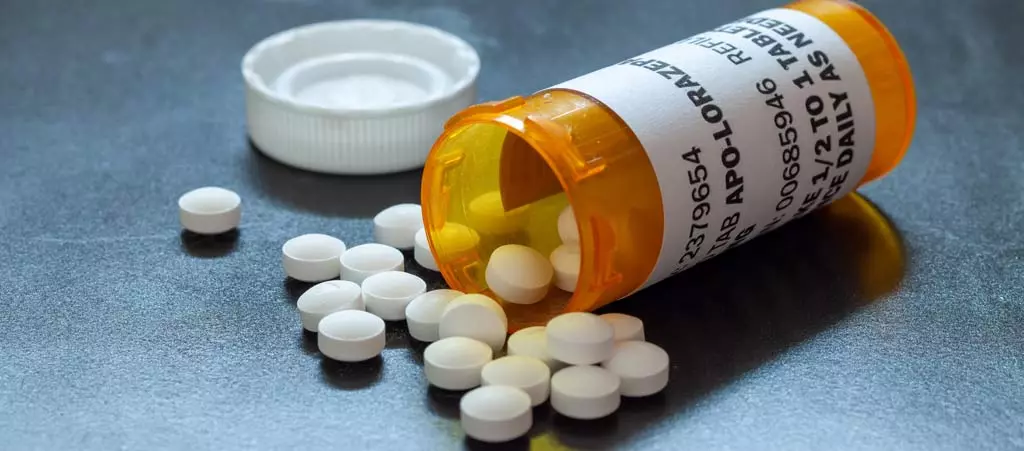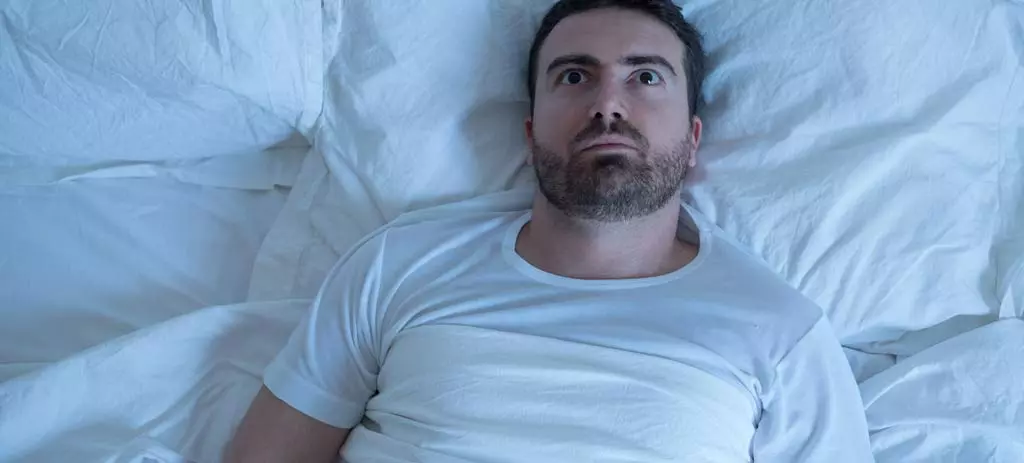Finding the Right Detox for Benzos
Table of Contents
Benzodiazepine addiction can change a person’s life for the worse. If you or a loved one has issues with benzos, and you want to leave that sort of life behind, the first step is finding a place that offers a suitable ‘benzo detox near me’ and ongoing, effective support.
Emerald Isle Health and Recovery provides a safe, secure, and well-monitored facility for a stress-free detox experience. If you want to learn more about benzo detox, and why you may need it, read on!
Medical Help for Benzos – Call Now!
Benzos: What are they?
Benzodiazepines are painkillers that work by slowing down the central nervous system. They’re used to treat anxiety disorders, other mental health disorders like chronic panic attacks, as well as insomnia. They’re also prescribed for various conditions, including epilepsy, seizures, muscle spasms, alcohol withdrawal, and nausea caused by chemotherapy. Benzodiazepines come in a variety of forms, including benzos, sleeping pills, and anti-anxiety medications.
Benzodiazepines work by slowing down the activity of your brain, which is how they help reduce generalized anxiety disorder and other mental illness conditions. They can also reduce muscle tension, which is why they are sometimes used to treat muscle spasms or seizures.
How do benzodiazepines affect the body?
Benzodiazepines work by affecting GABA receptors in the brain which inhibit neuronal activity. This results in sedation and relaxation of the central nervous system (CNS). The effects of benzodiazepines on the body can vary greatly depending on the type of drug, when it was last taken, how often you take it, and your individual body chemistry.
Benzodiazepines can cause drowsiness and dizziness, which can make them dangerous to drive or operate machinery while under their influence. Other side effects include headaches, blurred vision, and sensitivity to light. For some people, benzodiazepines may also cause muscle weakness or difficulty urinating.
Because benzodiazepines are central nervous system depressants, they can slow down your breathing rate and heart rate if taken in high doses or with alcohol. Overdosing on benzos can be fatal because they suppress your central nervous system functions until they stop altogether — leading to coma or death from respiratory failure.
The facts of benzo addiction
Benzodiazepine abuse is a common cause of substance use disorder and addiction in the U.S., with an estimated 2 million people abusing benzos each year. Though many people who receive prescriptions for benzos do not develop an addiction, those who do may develop a dependence on these drugs that lasts long after they stop taking them
Benzos are highly addictive. There is both physical dependence and chemical dependency at risk when abusing the substance. When taken according to prescription, these drugs can be helpful for short-term use. However, you can become dependent on these medications after years of use — especially if you take them more than prescribed or more often than recommended by your doctor. At the point of addiction, you would be struggling with a substance abuse disorder.
The exact reason why benzodiazepines cause physical dependence isn’t entirely known; however, research suggests that the brain becomes accustomed to having certain chemicals present in it, such as GABA or serotonin (neurotransmitters).
The signs and symptoms of benzodiazepine addiction
If you are addicted to benzodiazepines and engage in chronic use, you most likely will have a difficult time quitting them, even if you want to. You may experience intense cravings and withdrawal symptoms when you try to stop taking them cold turkey. There are many symptoms and signs that can indicate you may be struggling with a benzo addiction. They can be broken up into behavioral signs and physical symptoms.
Some of the more common behavioral signs are:
- Taking higher doses than prescribed
- Taking benzodiazepines more often than prescribed (daily or even several times per day)
- Having trouble stopping use even when you want to stop
- Feeling anxious or restless if you don’t take your medication at regular intervals
- Experiencing withdrawal symptoms when you stop using benzodiazepines
In terms of the physical, the following can be some of the severe symptoms associated with benzo addiction:
- Slurred speech
- Impaired coordination
- Difficulty with memory, concentration, and attention span
- Slow reaction time
- Heart palpitations
- Confusion and disorientation
The risk factors for benzodiazepine use disorder
In the United States, benzodiazepines are the most frequently used prescription drug class. Benzodiazepine Use Disorder (BDU) is a condition characterized by dependence on benzodiazepines, which involves the use of these medications without a prescription and in an amount that is greater than medically advised.
The National Institute on Drug Abuse (NIDA) estimates that there are more than 1 million people who abuse benzodiazepines in the United States alone. There are several factors that can result in someone being predisposed to a benzodiazepine use disorder. Let us examine those below.
Genetics and Prescription Drug Misuse
The genes you inherit from your parents determine, to a large degree, the way that your body works. If a gene is altered in some way (by mutation), it can change the way that protein is made. This can affect how you respond to drugs and alcohol. On some level, this is what experts mean when referring to a “family history”. If you have ancestors who have struggled with substance abuse, you are that much more likely to be at risk of abusing substances.
Environmental Factors in Benzo Abuse
By environmental factors, we mean social systems, as well as physical systems that surround you. People surrounded by others who constantly use controlled substances casually are likely to fall into similar habits of drug use. Also, there are socioeconomic factors at play. Those in challenging or lower-income environments have been statistically shown to be at risk of struggling with addiction. This can be benzodiazepines, for example, but can also be many other drugs and substances.
Trauma History and Anxiety Medications
If you have active trauma, excessive anxiety disorder, depression, PTSD, or other mental conditions, you are at risk of substance abuse disorder. Persons under intense pressure without a strong foundation and good support systems often fall prey to drugs as a way to try to cope and self-medicate.
What are the withdrawal symptoms with benzodiazepines?
Benzodiazepine use disorder can lead to symptoms of drug dependence, tolerance, and withdrawal. Withdrawal symptoms are the opposite of the initial effects of taking benzodiazepines. They occur when someone stops using benzodiazepines after regularly taking them for a long time. Common withdrawal symptoms include:
- Anxiety
- Nervousness or agitation
- Insomnia
- Tremor or seizure-like movements
- Confusion or disorientation
- Depersonalization (feeling detached from yourself)
Why is benzodiazepine addiction treatment necessary?
Benzodiazepine use disorder is a serious problem for some people who use these drugs. When you begin to struggle with a need for this type of drug, it’s important to seek professional treatment for your addiction. Benzo detox can be dangerous both physically and psychologically. An effective medical detox facility such as ours at Emerald Isle, will help you get clean from these drugs and begin the process of healing
A professionally designed and conducted treatment plan can offer a safe environment where you can receive care without worrying about getting sick from withdrawal symptoms or overdosing on these substances.
Immediate Placement for Benzo Addiction Treatment
What can I expect at rehab for benzos?
Good rehab facilities understand that treatment needs are extensive and require several components. These components, and how they are applied from person to person can vary wildly but generally, they fall under several categories.
Benzodiazepine detox
Generally, everyone who has a benzodiazepine addiction will experience withdrawal symptoms, often severe symptoms. This can lead to you remaining in the habit as a means of avoiding the unpleasant benzodiazepine withdrawal phase. Depending on how extensive and long your habit has been, you may experience a protracted withdrawal.
Detoxification is the first step in the treatment process for benzodiazepine addiction and withdrawal symptoms. Detoxification is the process of safely removing the drug from your body so that you can begin your recovery process. Medical detox can help to reduce the severity of withdrawal symptoms from benzodiazepine addiction by helping your body to recover from its dependency on this drug. Getting past the withdrawal phase with the highest degree of ease is critical to long-term recovery.
Behavioral Therapy for Benzos
Following withdrawals managed in our medical benzo detox, treatment for benzodiazepine use disorder revolves around therapy. Via therapy sessions, the reasons behind the anxiety disorders and general mental illness that may have led to the addiction in the first place can be unearthed and processed. The point of therapy, and rehab, is to enable recovery by empowering the client through timely interventions so that they can experience better health and live a life free of the grip and life-threatening risks associated with substance abuse habits.
There are many types of therapy utilized to treat a reliance on benzodiazepines. Below are some of the most common.
Psychotherapy
Psychotherapy refers to any type of mental health counseling that involves talking with someone who’s trained in psychology. It’s a valuable part of any medical treatment plan because it can help you understand your problems better and make healthy changes in your life. A psychotherapist might use different types of therapy, such as cognitive behavioral therapy (CBT) or dialectical behavior therapy (DBT), depending on what works best for each individual client.
Medication-assisted therapy (MAT)
MAT is a combination of behavioral therapy and medications designed to reduce cravings and manage withdrawal symptoms during detoxification. A combination of buprenorphine or naltrexone may be prescribed to help manage cravings while you’re detoxing from benzodiazepines.
Dual-Diagnosis Treatment
Dual-diagnosis treatment is used to treat clients who are struggling with more than one mental health condition at once. This is often referred to as comorbidity or co-occurring disorders. Benzodiazepine addiction is one example of a dual diagnosis because it can occur alongside mental health disorders like depression.
In this case, the client would be diagnosed and properly medicated on approved, safe, and monitored medications for the mental illness. This is usually done in combination with therapy sessions and ongoing psychological treatment.
Sober Support groups
Support groups can be used in treating benzodiazepine addiction. A support group is used to help individuals struggling with substances or behaviors overcome their problems. There are different types of support groups, and they can be found in various places. Some are offered by hospitals and treatment centers, while others are run by community organizations.
The truth is that the continued support and community offered by these types of groups of peers can be invaluable in helping those formerly dealing with substance use disorders remain grounded and feel supported in their recovery journey.
Why is an individualized treatment plan in rehab needed?
Recovery from drug and alcohol addiction is a difficult process. There are no shortcuts, and you can’t expect to be sober for life without putting in the work. A professional, individualized rehab treatment plan is necessary for long-term recovery because it’s based on your unique needs as an individual. A one-size-fits-all approach doesn’t work for everyone. It’s important to find a program that offers an individualized treatment plan so that you can receive the treatment that works best for you.
A professional and individualized rehab treatment plan will be able to address these factors and provide you with a customized treatment plan based on your unique circumstances. There are many reasons why this type of program is necessary for long-term recovery.
Free Mental Health Assessment – Get Help Now
Emerald Isle and Trauma-Informed Treatment Methods
Your stay at Emerald Isle Health & Recovery is tailored to your needs and treatment goals. A professional rehab program can help you create a personalized recovery plan that meets your specific needs and goals. For example, some people might want to focus on developing coping skills to deal with cravings in the future while others may want to learn how to avoid triggers in their day-to-day lives. A professional will be able to help you determine which programs would be most beneficial for your situation and develop a strategy accordingly.
The structuring and process of a professional plan consists of:
- An assessment of mental health disorders and a medical examination
- Identifying triggers and developing coping strategies
- Education on addiction and its effects on the body, mind, and spirit
- Medication management (if necessary)
- Family therapy or group therapy sessions
Enter Benzo Detox and Get Relief Today!
Substance abuse can steal your whole life away. If you or a loved one are suffering and require benzodiazepine addiction treatment, look no further than Emerald Isle Health and Recovery! Our state-of-the-art facilities and highly qualified staff are standing by to help.
Getting clean can be a difficult decision to make and can be scary, which is why our team of certified addiction experts will walk you through every step of the way with a personalized and tailor-made plan designed to get you back to living life on your own terms as quickly and painlessly as possible. Do not wait, reach out to us today, and let’s get started!





